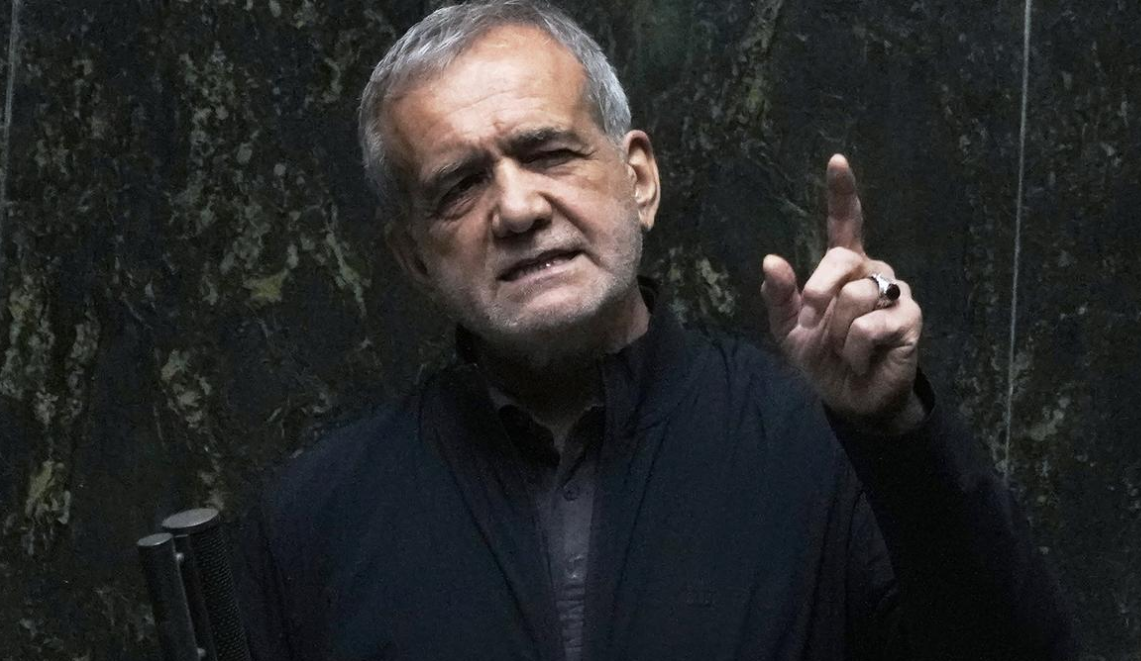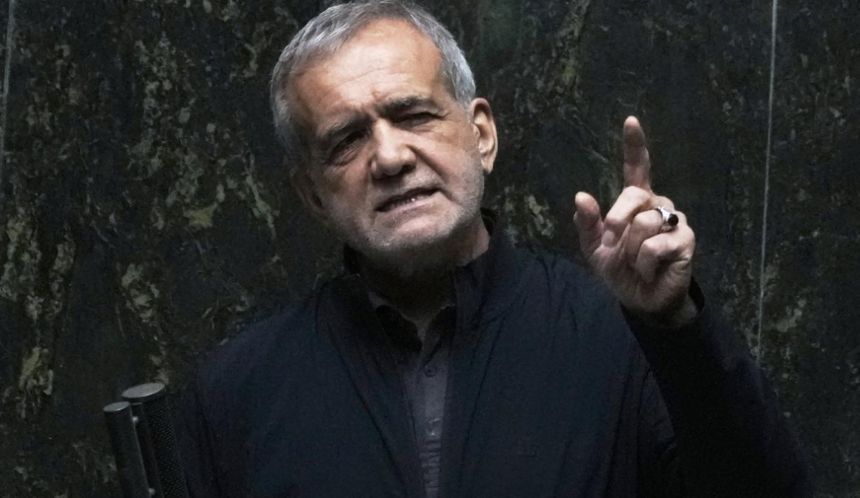In a significant and unprecedented move, Iran’s hard-line parliament has approved all the members of President Masoud Pezeshkian’s Cabinet, marking the first time since 2001 that a leader has successfully passed all his officials through the legislative body. This development not only underscores the shifting political dynamics within the Islamic Republic but also signals potential changes in the balance of power between the executive and legislative branches. President Pezeshkian, a reformist with a vision for modernization and increased international engagement, now faces the formidable task of navigating Iran’s complex political landscape with a Cabinet that represents a broad spectrum of political ideologies.
This article will explore the historical context leading to this approval, analyze the implications for Iran’s domestic and foreign policy, and assess the challenges and opportunities that lie ahead for President Pezeshkian and his administration.
A Historic Moment: The Context and Significance
The approval of all Cabinet members by Iran’s hard-line parliament is a rare and historic event. Since the establishment of the Islamic Republic in 1979, the relationship between the parliament (Majlis) and the presidency has often been fraught with tension, particularly when the president hails from a reformist or moderate background. The Majlis, dominated by conservatives and hard-liners, has traditionally been skeptical of reformist agendas, often leading to a contentious and protracted approval process for Cabinet appointments.
The last time a president managed to get all his Cabinet members approved without resistance was in 2001, during the presidency of Mohammad Khatami, a prominent reformist. Khatami’s era was marked by a push for greater political freedoms, civil society engagement, and a more open dialogue with the West. However, his efforts were frequently stymied by conservative elements within the government, leading to a significant pushback against his policies.
In contrast, President Masoud Pezeshkian’s recent success in securing approval for his entire Cabinet reflects a potential shift in the political climate. This development suggests that even within a hard-line-dominated parliament, there is an acknowledgment of the need for a more pragmatic approach to governance, especially in the face of mounting economic challenges, international isolation, and domestic unrest.
Who is Masoud Pezeshkian?
To understand the significance of this development, it is crucial to examine the background and political philosophy of President Masoud Pezeshkian. A seasoned politician and former physician, Pezeshkian has long been a prominent figure within Iran’s reformist camp. He has served in various governmental capacities, including as a deputy health minister and as a member of the parliament, where he was known for his advocacy of healthcare reform and social justice.
Pezeshkian’s political career has been marked by a commitment to addressing the socio-economic grievances of ordinary Iranians, a stance that has resonated with a populace increasingly disillusioned with the status quo. His reformist credentials, however, have not come without challenges. Pezeshkian has had to navigate a delicate balance between advocating for change and maintaining a level of pragmatism that would allow him to operate effectively within Iran’s highly factionalized political system.
The Cabinet: A Blend of Ideologies
The composition of Pezeshkian’s Cabinet is a testament to his pragmatic approach to governance. Rather than appointing only staunch reformists, Pezeshkian has assembled a team that includes individuals from across the political spectrum, including moderates and even some conservatives. This strategy appears to have paid off, as it has helped him secure the necessary support from the hard-line parliament.
Some key members of the Cabinet include:
- Ali Akbar Salehi as Foreign Minister: A seasoned diplomat and former head of Iran’s Atomic Energy Organization, Salehi is known for his expertise in nuclear negotiations and his ability to engage with the international community. His appointment signals Pezeshkian’s commitment to pursuing a balanced foreign policy that prioritizes diplomacy and seeks to ease tensions with the West.
- Bijan Namdar Zanganeh as Oil Minister: A veteran of Iran’s energy sector, Zanganeh has held the position of Oil Minister under multiple administrations. His reappointment suggests a focus on stabilizing Iran’s oil industry, which has been severely impacted by international sanctions and falling global oil prices.
- Mohammad Javad Azari Jahromi as Minister of Information and Communications Technology: A younger, more tech-savvy official, Jahromi’s appointment indicates a push towards modernizing Iran’s technological infrastructure and addressing the growing demand for digital connectivity among the younger population.
- Masoumeh Ebtekar as Vice President for Women and Family Affairs: A prominent reformist and former environmental activist, Ebtekar’s appointment reflects Pezeshkian’s commitment to advancing women’s rights and addressing gender inequalities in Iran.
By including a diverse range of voices in his Cabinet, Pezeshkian has not only managed to appease the hard-line elements within the parliament but also positioned his administration as one that is capable of navigating the complexities of Iranian politics.
The Challenges Ahead: Domestic and International
While the approval of his Cabinet is a significant victory for President Pezeshkian, it is only the beginning of what promises to be a challenging tenure. Iran faces a myriad of issues, both domestically and internationally, that will test the resolve and effectiveness of his administration.
A. Economic Challenges
One of the most pressing challenges facing Pezeshkian’s administration is the dire state of Iran’s economy. Years of international sanctions, coupled with mismanagement and corruption, have left the economy in a precarious state. Inflation is soaring, unemployment is high, and the national currency, the rial, has lost significant value.
Pezeshkian’s economic team will need to address these issues head-on. This includes finding ways to stimulate economic growth, reduce unemployment, and stabilize the currency. The oil sector, traditionally the backbone of Iran’s economy, will require particular attention, especially given the fluctuations in global oil prices and the ongoing impact of sanctions on oil exports.
B. International Relations
Iran’s relationship with the international community, particularly the West, remains fraught with tension. The country’s nuclear program continues to be a point of contention, with ongoing negotiations aimed at reviving the Joint Comprehensive Plan of Action (JCPOA), commonly known as the Iran nuclear deal.
President Pezeshkian’s administration will need to navigate these complex negotiations carefully. While there is a desire within Iran to see sanctions lifted and the economy revitalized, there is also significant pressure from hard-line elements to resist any concessions that could be perceived as a capitulation to Western demands.
Pezeshkian’s foreign policy team, led by Ali Akbar Salehi, will play a crucial role in shaping Iran’s approach to these negotiations. Their ability to balance domestic political pressures with the need for international engagement will be key to determining the success of Iran’s diplomatic efforts.
C. Domestic Reforms and Social Issues
Domestically, Pezeshkian faces the challenge of addressing the demands of a population that is increasingly frustrated with the lack of progress on social and political reforms. Issues such as women’s rights, freedom of expression, and political transparency remain contentious topics within Iran.
Pezeshkian’s administration has indicated a commitment to addressing these issues, but doing so will require navigating the resistance from conservative elements within the government and society. The inclusion of figures like Masoumeh Ebtekar in the Cabinet suggests that Pezeshkian is serious about advancing social reforms, but the extent to which he can achieve meaningful change remains to be seen. 
Implications for Iran’s Political Landscape
The successful approval of Pezeshkian’s Cabinet by the hard-line parliament has significant implications for Iran’s political landscape. It suggests that there may be a growing recognition within the hard-line camp of the need for pragmatism and compromise, especially in the face of the country’s mounting challenges.
A. The Role of the Parliament
The parliament’s approval of Pezeshkian’s Cabinet could signal a shift in the balance of power between the executive and legislative branches. Traditionally, the Majlis has been a formidable obstacle for reformist presidents, often blocking their appointments and initiatives. However, Pezeshkian’s success in securing the approval of his Cabinet members suggests that there may be a willingness among hard-liners to work with the reformist president, at least on certain issues.
This does not mean that the parliament will become a rubber stamp for Pezeshkian’s policies. However, it does indicate that there may be more room for negotiation and compromise than in previous administrations. This could pave the way for more effective governance and the implementation of key reforms.
B. The Future of Reformist Politics in Iran
Pezeshkian’s success also has implications for the future of reformist politics in Iran. The reformist movement has faced significant setbacks in recent years, with many of its leaders sidelined or marginalized by the conservative establishment. However, Pezeshkian’s election and the subsequent approval of his Cabinet suggest that the reformist agenda is far from dead.
If Pezeshkian is able to deliver on his promises and implement meaningful reforms, it could reinvigorate the reformist movement and strengthen its position within Iran’s political landscape. This could lead to a more balanced political environment, where reformists and conservatives are able to coexist and collaborate on key issues.
C. The Broader Regional Impact
Iran’s internal political dynamics have always had broader implications for the Middle East region. As a key player in regional politics, Iran’s domestic policies and international relations can influence the stability and security of the region.
Pezeshkian’s approach to foreign policy, particularly in relation to the West and Iran’s regional neighbors, will be closely watched by other countries in the Middle East. His administration’s success or failure in addressing Iran’s economic challenges and securing a deal on the nuclear issue could have ripple effects across the region, impacting everything from oil prices to regional security dynamics.
Conclusion
The approval of all members of President Masoud Pezeshkian’s Cabinet by Iran’s hard-line parliament is a historic milestone that marks a potential shift in the country’s political dynamics. This development reflects a recognition of the need for pragmatism and compromise in the face of Iran’s mounting challenges, both domestically and internationally.
Pezeshkian now faces the daunting task of delivering on his promises and navigating the complex political landscape of Iran. His success will depend on his ability to balance competing interests, implement meaningful reforms, and engage effectively with the international community.
As Iran moves forward under Pezeshkian’s leadership, the world will be watching closely to see how this historic moment shapes the future of the Islamic Republic and its role in the global arena. ALSO READ:- Badlapur School Sexual Assault Case: Bombay High Court Hearing on August 22 Sparks Urgent Calls for Child Protection Reforms





